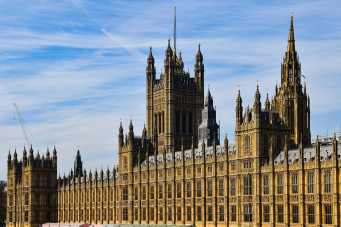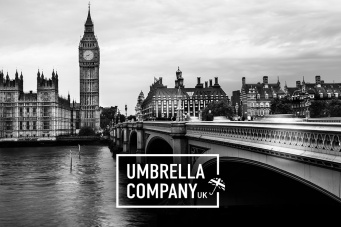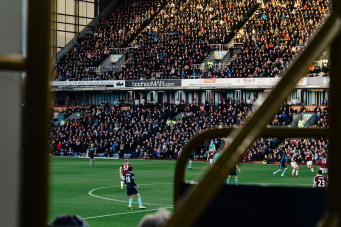
In The Frame – July ’15
Nearly 30% of all TV viewing — subscription, free video sites, connected TV devices — comes via digital streaming, according to a new survey.
Netflix added more than one million US subscribers and 2.37 million internationally in the first half of 2015. Netflix expects to be in 200 countries by the end of next year, with Japan, Portugal, Italy and Spain slated to launch in autumn. China and India will follow.
A French rival to Netflix, meanwhile, has been dropped. A group of French broadcasters, as well as mobile operator Orange, had planned to launch an SVoD service but that has now been abandoned due to the threat of the established streaming giant.
Facebook has debuted three short films. Sam Chen’s Oscar-nominated film, Amazonia, Serguei Kouchnerov’s animated short Hybrid Union, and Nullarbor, the award-winning animated film set in the barren landscape of Australia’s Nullabor Plain have been featured.
“The animated shorts have been an annual staple of exceptional visual storytelling within the ShortsHD library for years, and they are some of the best performing movies in our Oscars theatrical release,” said Carter Pilcher, CEO at ShortsHD, which kicked off its Summer of Animation season by premiering the shorts exclusively on the social network.
BBC News
It’s been a big month for the BBC so we have a special edition of In The Frame… for you to bring you a summary of the biggest news.
Job cuts announced
We started the month with a BBC announcement that it’s to cut more than 1,000 jobs to make up for a funding shortfall of £150 million, largely due to the faster-than-expected switch to online viewing.
The bigger picture
Since then, a debate concerning the very future of the corporation has dominated the news.
With the BBC’s Charter due for renewal at the end of 2016, combined with those rapidly changing viewing habits and a continuing squeeze on public spending, everyone, it seems, has an opinion on the subject.
Big-hitters such as ITV chief executive Adam Crozier and Harry Potter creator JK Rowling are among those concerned that much tighter spending controls imposed on the BBC will lead to vastly diminished services.
Indeed, Rowling is among a group including Daniel Craig, Dame Judi Dench and Sir David Attenborough who have signed an open letter to David Cameron ahead of the BBC’s Charter Review.
The government is already making suggestions – believing, for example, that there are “legitimate questions” to be asked about the BBC’s role in the development of technology.
While the BBC themselves reckon the public should decide its future, Graham Norton’s proposal is perhaps the most radical way forward: “I think they should switch off the BBC for two months. Just put £24 into everyone’s bank account and switch the BBC off for two months and people would s*** themselves.”
Licence fee Budget announcement
We heard, in the chancellor’s budget announcement, that the BBC itself – rather than the government – is to fund licence fees for Britain’s over-75s. That cost alone is expected to fall somewhere between £650 million (the BBC’s figure) and £745 million (the amount quoted by broadcastnow.co.uk).
iPlayer woe…or an opportunity?
Also, dealing a blow to the corporation that couldn’t be more badly timed, a survey conducted by GlobalWebIndex suggests the BBC is missing out in millions of pounds as “more than 60 million people outside the UK” watch content via the iPlayer it using proxy servers or virtual private networks (VPNs). But this might not be as bad as it seems:
“The implications for iPlayer are stark. However, rather than seeing this as a threat, there’s much good news here for the BBC,” wrote Jason Mander, head of trends at GlobalWebIndex, in the report. “If even a relatively small proportion of users could be converted into paid users, the additional revenue it could create for the BBC would be significant.”
Playout and media management
In other BBC news, Ericsson has been awarded a seven-year contract for playout and media management for the corporation’s UK channels, red button service and BBC World News.
BBC Sport
For six years from 2016, the BBC and ITV will share the rights to broadcast rugby union’s annual Six Nations Championship. Wales, Scotland and France home matches will be on the BBC, while ITV will show England, Ireland and Italy home games.
With BBC3 set to become online-only, the channel drew 1.4 million viewers for England’s third-place play-off match against Germany in the Women’s World Cup.
And finally…
- With Sky chief engineer Chris Johns suggesting earlier this year that early providers of 4K content, such as Netflix, may have moved too soon, and that UHD needs a “wow factor”, the SMPTE (Society of Motion Picture and Television Engineers), of which Johns is the UK chair, is to present a technical session on Ultra HD at IBC in September. ‘UHD: Where Do We Stand and Where Are We Going?’ will feature broadcaster case studies on UHD.
- Sony Mobile is to join forces with Tokyo start-up ZMP to form Aerosense and sell services using drones (but not the drones themselves, and it’s not yet clear to what extent the business will focus on media production).
- Back to the Future legend Christopher Lloyd, Inbetweeners stars Simon Bird and Greg Davies, Episodes actress Tamsin Greig and comedian Sarah Millican will all be telling naughty tales in the third series of Dave comedy Crackanory.
- Sky Sports has won the right to air ‘near-live’ clips of the Premier League – but will let The Sun and The Times show them.
- Staying with sport, there’s bad news for NFL fans: Channel 4 won’t be showing any this year
From the latest news to the latest positions – click here to see Frame 25’s most recent additions to its list of available TV jobs

How the Employment Rights Act 2025 Is Reshaping the Freelance Market

Umbrella Company Reforms - An Overview
